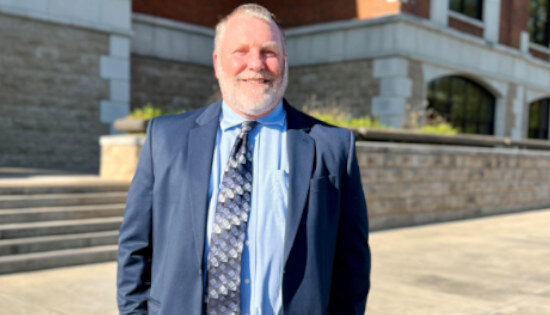
Gary Wisenbaker, Valdosta Today Opinion Contributor
 General George Patton described his battlefield success as “not paying for the same real estate twice.” He believed doing so was a waste of time, money and, most importantly, human life.
General George Patton described his battlefield success as “not paying for the same real estate twice.” He believed doing so was a waste of time, money and, most importantly, human life.
Yet the “children having children” narrative segued into such a discussion recently—along with a possible entitlement expansion.
It involves grandparents and other relatives who have become the “kinship caretakers” of the (possibly) more than 300,000 children of impoverished single mothers in Georgia.
And that comes with a reverse price tag. These care providers receive just half the amount paid to foster care (or state appointed) providers. The Georgia legislature is looking at resolving the disparity.
 The problem is that the contemplated steps are aimed at treating a symptom rather than an underlying epidemic.
The problem is that the contemplated steps are aimed at treating a symptom rather than an underlying epidemic.
Many question whether paying the grandparents, aunts or other relatives, again to care for yet another generation of single parented children is the best public policy.
“The urgency,” state Rep. Stacey Abrams, D-Atlanta, explains, is the explosive growth in the number of children being reared by their grandparents, and that the answer lies in establishing “different gradations of legal authority” so that parents don’t have to forfeit their parental rights.
“These children are our children,” Abrams said, adding, “We have to understand that our society has a very different approach to caregiving . . . and the person who is willing to take that responsibility should be supported by the state.”
In other words, it takes a village. And if that’s the case, then maybe their parental rights have already been forfeited.
There was a time when self-sacrifice and personal responsibility were hallmarks of caregiving in America. One took care of their kin out of a feeling of familial duty. Three generation households where both the oldest and youngest were cared for were not uncommon. These, however, were stable, two parent households.
The notion is now turned on its head thanks to the rise of the entitlement state.
There have always been teen pregnancies. But prior to 1960, most teen mothers were married—an estimated 15 percent of births to mothers ages 15-19 were to unmarried teens. But since the War on Poverty began in 1964, it has flipped: now 89 percent of births are to unmarried mothers in that age group.
And it is this failure of the liberal, social engineering welfare state that must be acknowledged rather than creating yet another government entitlement to fix a government created problem.
This is nothing short of than paying for the same real estate twice.
That these innocent lives should not suffer because of the irresponsibility of their biological parents is a legitimate charge for any benevolent society. In the long term, however, the cause should be targeted, not the symptom.
There is hope.
Recent data suggests that the percentage of never-married teenage females who ever had sex, declined from 51 percent in 1988 to 43 percent in 2006-2010. Abstinence clearly has a role to play.
And consider Colorado. It instituted a program that offered women long-acting reversible contraceptives (LARCs) free of charge that saw teenage birthrates drop by 40 percent and an abortion rate by 42 percent over a six year period, two highly desirable goals.
Unmarried teen pregnancy, however, does not occur in a vacuum and all the prophylactic measures in the world won’t end it. It is the result of an activity the repercussions of which cannot be appreciated by most young minds.
Building families that engender responsibility and integrity in the home is the key to building a responsible teenager (both boys and girls) with the maturity to understand that actions have consequences.
The state of Georgia doesn’t need 300,000 children, Rep. Adams, these children need responsible parents.
And repeating the mistakes of 1964 is not the way to get there.
Gary Wisenbaker, B.A., J.D. is a native of South Georgia where he practiced law in Valdosta and Savannah for 31 years. He has served as state chairman of the Georgia Young Republicans and Chairman of the Chatham County (Savannah) Republican Party. Gary is a past GOP nominee for State Senate, past delegate to the Republican National Convention and has consulted on numerous local Republican campaigns as well as chaired or co-chaired campaigns for President and US Senate on the county and district level. He is the principal and founder of Blackstone, LLC, a corporate communications and public relations concern as well as Wiregrass Mediation Services, LLC, a general civil litigation mediation firm.
Gary hosts his own blog at www.garywisenbaker.com and recently published his first fictional work, “How Great is His Mercy: The Plea”, on Amazon.com. His columns are regularly published on ValdostaToday.com and the Valdosta Daily Times.










